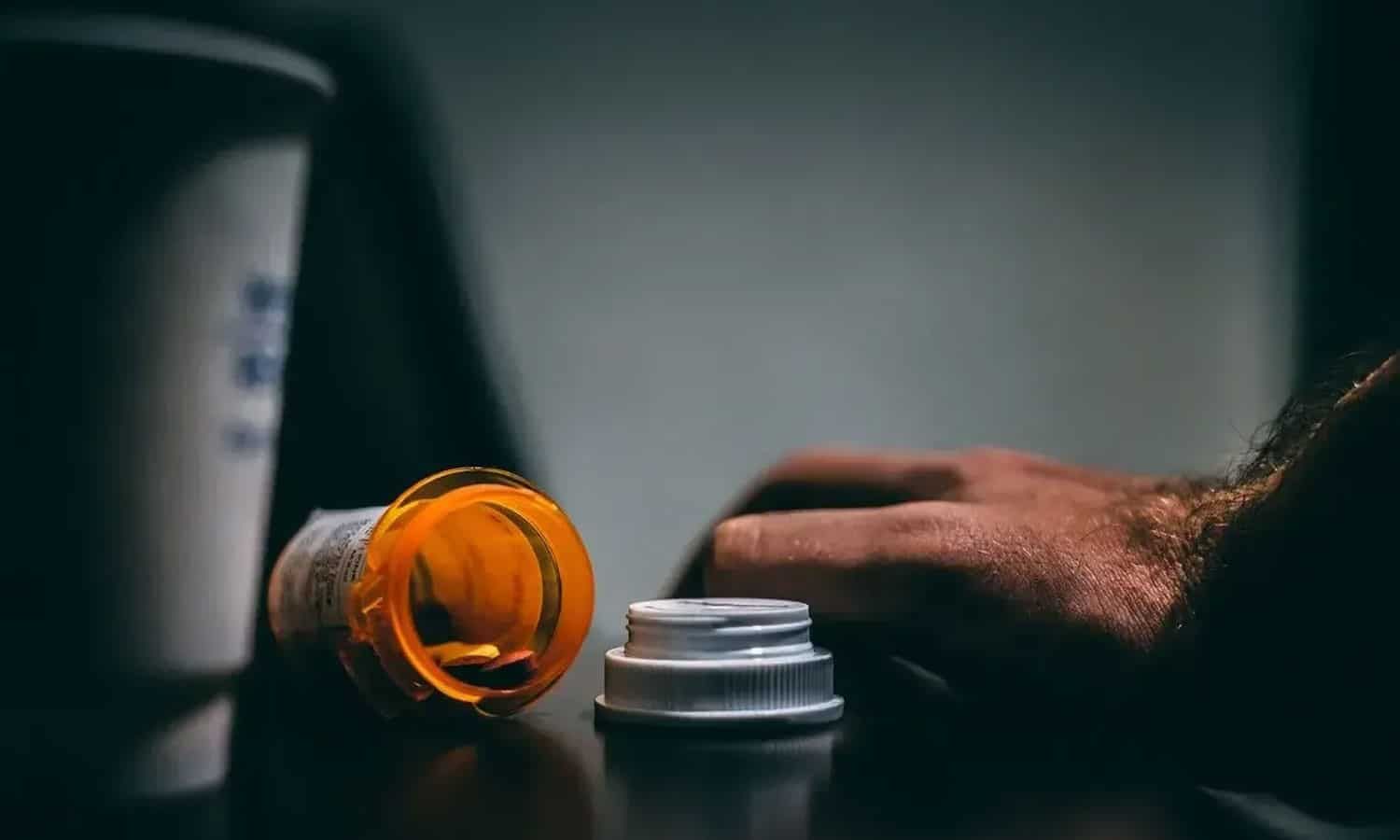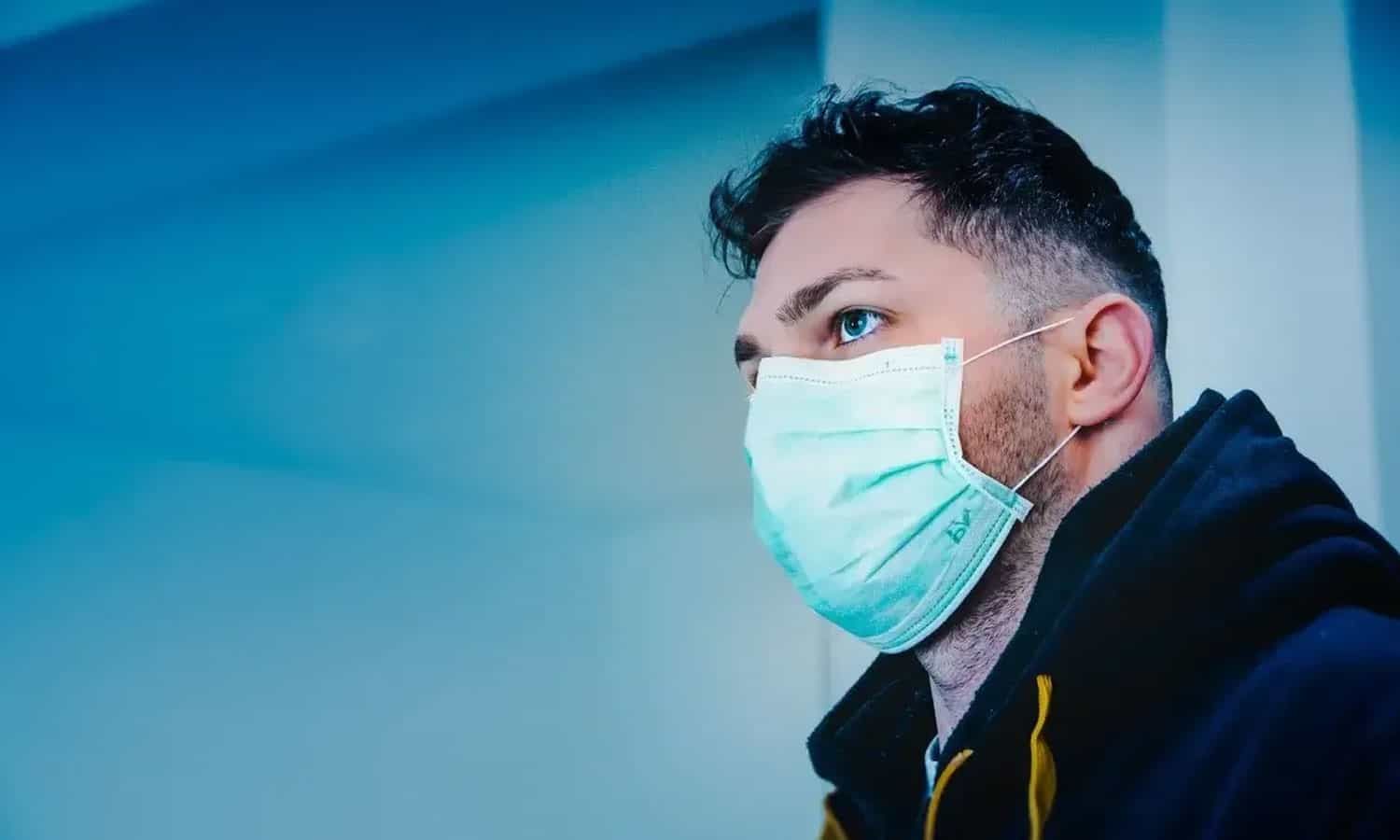Decoding Simping Behavior: Expert Insights at Atlanta Rehab

Navigating the World of Simping: Terms, Context, and Controversy
In the bustling streets of online discourse, a term has found its way from the niche corners of internet slang into mainstream conversation: “simp.”
Originally rooted in hip hop music and shaped by the complexities of modern love and gender expectations, simping has evolved from a word whispered in judgment to a hashtag that embodies a broad spectrum of behaviors and attitudes toward romance.
As this term straddles the line between compliment and insult, it invites a closer examination of how expressions of affection and masculinity are perceived in today’s digital age.
The conversation around simping is as multifaceted as it is heated, sparking debates on its impacts on relationships, self-esteem, and societal norms.
Keep reading to unravel the layers of simping, from its misunderstood beginnings to its place in contemporary culture.
Understanding Simping: More Than Just a Meme
In the labyrinth of digital culture, the concept of ‘simping’ occupies a curious space, teeming with nuances and often misunderstood intentions.
Initially surfacing within the corridors of hip hop music and New York City slang, simping has spiraled into a global conversation, facilitated by the ubiquity of social media platforms.
This exploration into the origins and evolution of simping unearths its complex journey from a pejorative slur to a contentious topic of debate.
Simping, at its core, represents a spectrum of behavior, raising questions about the boundary between wholesome admiration and excessive, unreciprocated devotion.
Acknowledging this duality invites a deeper reflection on the cultural and emotional landscapes that shape our interpretations of love, respect, and sympathy.
Exploring the Origins and Evolution of Simping
The term “simp”, originally embedded in the vibrant lexicon of hip hop music and the dynamic streets of New York City, has evolved significantly over time. Its journey from a niche piece of slang to a global phenomenon underscores the powerful role of the internet and social media in catapulting subcultural terms into the spotlight.
As simping traversed through various cultural landscapes, its meaning and connotations experienced a remarkable transformation. No longer confined to its original context, it began sparking debates across online platforms, challenging traditional notions of masculinity and prompting discussions around modern romance and gender dynamics.
The Thin Line Between Appreciation and Simping
Appreciation operates on the premise of respect and admiration, tethered closely to the realms of healthy interaction and sincere compliments. In contrast, simping blurs these boundaries, often manifesting as an overinvestment of emotional energy or resources in someone who hasn’t reciprocated these feelings, casting a shadow on the genuine intent of admiration.
This delicate balance becomes particularly tricky to navigate in the digital age, where expressions of affection or support are easily misinterpreted or exaggerated. The discourse surrounding simping illuminates the complexities of modern relationships, urging a reevaluation of how we express appreciation without tipping into the excesses that dilute its sincerity.
The Language of Love or Loss? Decoding Simp Jargon
In the maze of modern linguistics, internet slang like ‘simp’ and phrases such as ‘white knight’ become pivotal in understanding social fabric online.
This section dives into a comprehensive glossary that unpacks the labyrinth of language surrounding simping, spotlighting how such terminology shapes our interactions on digital platforms.
The evolution of these terms not only reflects shifts in societal norms but also acts as a barometer for the ever-changing dynamics of online courtship and social engagement.
As we decode the jargon, we tread into a realm where words wield the power to define behaviors, outline subcultures, and ignite controversies, offering a window into the complex dance between contemporary expressions of affection and the pitfalls of perceived overzealous admiration.
From ‘Simp’ to ‘White Knight’: A Glossary Unraveled
Untangling the web of language that surrounds simping uncovers an intricate glossary where ‘simp’ and ‘white knight’ stand as significant markers. ‘Simp’, traditionally a term that casts men in a light of pity for overly servicing unrequited love, contrasts sharply with ‘white knight’, a label describing someone who rushes to defend a person, often on the internet, with the expectation of gaining romantic or sexual favor.
The nuanced distinction between these terms illuminates the broader discourse on internet culture’s influence on modern romantic engagement. As debates continue to swirl around the implications of such labels, understanding their origins and usage becomes crucial in navigating the complex dynamics of online interactions and relationships.
How Internet Slang Shapes Social Interactions Online
Internet slang, such as ‘simp’, radically transforms our online social interactions, acting like a double-edged sword. It provides a communal language that bridges gaps, yet it also has the power to warp perceptions and foster misunderstandings, especially in the nuanced world of online communication.
As terms like ‘simp’ permeate social media, their interpretations can vary widely among different communities, highlighting slang’s significant role in shaping the landscape of digital romance and friendship. This evolving lexicon challenges users to stay informed and adaptable, ensuring that the spirit of their interactions aligns with the ever-changing online vernacular.
Positive Aspects of Simping in Modern Relationships
In a landscape often quick to judge and label, simping presents a paradoxical narrative that challenges preconceived notions about modern relationships.
Delving into the positive aspects of simping sheds light on its capacity to break stereotypes, revealing that actions deemed as ‘simp’ behavior might not always stem from a place of negativity.
This critical examination lays the groundwork for understanding how empathy and support, frequently overlooked yet fundamental components of simping, play a crucial role in fostering meaningful connections.
Bridging gaps between misconceptions and reality, simping emerges as a nuanced phenomenon that harbors potential for deepening emotional intelligence and nurturing supportive bonds.
Breaking Stereotypes: When Simping Isn’t Negative
In the nuanced theatre of modern relationships, simping shatters the ice of gender norms, showing that vulnerability and expressive support aren’t signs of weakness but of courage and authenticity. This redefinition challenges the toxic shackles of masculinity, where showing affection or being overly supportive was once viewed through a lens of mockery or disdain.
Moreover, embracing the simp mentality cultivates healthier connections by encouraging open expressions of emotion and admiration. This shift not only revitalizes how individuals approach romance and friendship but also dismantles the stigma attached to men who step outside traditional bounds of stoicism to genuinely engage with their emotions and those of others.
Empathy and Support as Underrated Elements of Simping
Empathy and support, often overshadowed in discussions about simping, are pivotal in cultivating deep, meaningful relationships. Recognizing these elements as fundamental rather than weaknesses enriches the tapestry of human connections, allowing for a more nuanced interpretation of behaviors often hastily labeled as simping.
At its core, the act of simping, when stripped of its negative connotations, highlights an individual’s capacity for unwavering support and understanding. This unheralded aspect promotes a culture of openness and emotional generosity, pushing back against the tide of cynicism that sometimes permeates conversations about modern love and friendship.
Navigating the Backlash Against the Culture of Simping
As the conversation around simping matures, criticisms and misconceptions have inevitably surfaced, marking a pivotal aspect of its broader discourse.
These critiques often target the perceived impact of simping on individuals’ mental health and self-esteem, painting it as a potentially harmful behavior that can reinforce negative self-perceptions.
Addressing these concerns head-on requires a nuanced understanding of the relationship between simping and psychological wellbeing, challenging us to consider how what started as a meme can evolve into a catalyst for introspection on the complexities of modern social interactions and the pursuit of validation.
Addressing Criticisms and Misconceptions Head-On
In confronting the backlash against simping, it’s crucial to distinguish between constructive critique and baseless stereotypes. The charge that simping inherently undermines self-respect or perpetuates unbalanced relationships often overlooks the positive aspect of openly expressing care and support, essential for the growth of healthy, meaningful connections.
Countering the misconceptions demands a careful examination of the dynamics at play within the culture of simping. Highlighting stories and experiences where simping has fostered deep, reciprocal connections can shift the narrative away from negativity, showcasing its potential to redefine strength and vulnerability in contemporary relationships.
The Impact on Mental Health and Self-Esteem Issues
Exploring the relationship between simping and its impact on mental health sheds light on a somewhat shadowy corner of modern social dynamics. The excessive investment in an unreciprocated connection, emblematic of simping, can lead to a significant erosion of self-esteem, as individuals may begin to question their own worth based on the lack of reciprocation.
Furthermore, the intertwining of simping with online platforms often amplifies its effects on mental well-being. The constant exposure to idealized portrayals of relationships and personal interactions can exacerbate feelings of inadequacy and isolation among those who identify with the simp narrative, pushing them toward a cycle of negative self-perception and emotional turmoil.
The Role of Social Media in Amplifying the Concept of ‘Simp’
Social media has been the cornerstone of simping’s escalation from a term rooted in hip hop and New York City slang to a global phenomenon, sparking significant discourse across various platforms.
The effortless sharing, hashtagging, and viral nature of internet culture have propelled simping into the spotlight, with celebrities and influencers playing a pivotal role in navigating and sometimes amplifying the conversation.
This section delves into the mechanisms of virality and influence behind simping’s rise, exploring how personalities in the public eye have contributed to shaping the perceptions and discussions around this contentious topic.
The Virality Factor : Why ‘Simping’ Took Over the Internet
The viral ascent of ‘simping’ across the vast networks of social media underscores the magnetic pull of relatable content blended with a touch of humor and controversy. Platforms like Twitter and Instagram, where hashtags morph into movements, have become fertile ground for the term’s proliferation, turning it into a global talking point almost overnight.
Celebrities and internet influencers leveraging the term in tweets, memes, and videos have significantly contributed to its widespread recognition. Their endorsement transformed simping from a niche slang term into a ubiquitous element of online discourse, demonstrating the potent mix of celebrity influence and social media dynamics in shaping cultural trends.
Celebrities, Influencers, and Their Part in Spreading Trends
Celebrities and influencers carry the torch when it comes to transforming internet slang like ‘simp’ into widespread phenomena. Their vast reach allows them to inject new life into trends, effectively shaping how these terms are perceived and used across various social platforms.
By integrating the concept of ‘simping’ into their content, these public figures catapult the term from the shadows of niche forums into the mainstream spotlight. This impact not only broadens the audience but also adds layers of meaning and interpretation, influencing the discourse in significant ways.
Towards a Balanced Viewpoint; Reshaping Perspectives on Simp Culture
In the quest to reshape perspectives on simp culture, a pivotal shift is underway, one that beckons us to look beyond pejorative labels and towards fostering healthier expressions of affection.
This transformation calls for a rich, nuanced discourse that not only reevaluates ‘simping’ but also champions emotional honesty and vulnerability.
Examining the trajectory of simp culture reveals an urgent need for change, advocating for a future where the language of love and support is liberated from the shackles of ridicule and misunderstanding.
As society ventures into this uncharted territory, the encouragement of genuine, heartfelt gestures stands as a beacon for those navigating the complexities of modern relationships, signaling a departure from toxic stereotypes towards a more inclusive and empathetic understanding of connection.
Evolving Beyond Labels – Encouraging Healthy Expressions of Affection
Moving away from labels such as ‘simp’ encourages a cultural shift towards recognizing the importance of expressing affection and empathy in healthy, supportive ways. This positive evolution advocates for an environment where showing care and emotional vulnerability is not seen as a weakness but as a strength that fosters deeper, more meaningful relationships.
As society begins to embrace these more nuanced understandings of affection, the stigma surrounding expressions of love—especially among men—starts to dissolve. This encourages individuals to engage more openly and authentically with their emotions, steering the narrative towards a framework that values empathy and genuine connection over outdated stereotypes.
The Future Discourse Around ‘Simping’ : What Changes Are Needed?
As we step into the future discourse around ‘simping,’ it becomes imperative to cultivate spaces where the term can evolve beyond its simplistic and often negative connotations. This requires a collective effort to dismantle the echo chambers of ridicule that overshadow the potential for ‘simping’ to embody genuine expressions of affection and care within modern romance and friendships.
Moreover, enhancing the dialogue around ‘simping’ involves an increased awareness of the diverse ways people relate and connect in the digital age. By embracing a more inclusive and empathetic understanding, the narrative can shift towards a framework that fosters healthy relationships and combats the stigma associated with expressing vulnerability and emotional support.
Conclusion
Navigating the complex landscape of “simping” requires a nuanced understanding of its origins, development, and the intricacies surrounding modern relationships.
From its roots in hip hop to its proliferation via social media, “simping” has evolved from a pejorative term to a contentious topic that challenges traditional notions of masculinity and affection.
Distinguishing between genuine appreciation and the excessive devotion marked as “simping” illuminates the fine line between healthy and unhealthy expressions of emotion in the digital age.
With terminology like “simp” and “white knight” shaping perceptions, it becomes crucial to decode this jargon to foster healthier, more empathetic connections.
As society grapples with misconceptions and the criticisms leveled at simping, especially regarding mental health and self-esteem, the discourse shifts toward recognizing the positive aspects of supportive and empathetic behavior.
Encouraging a balanced, informed perspective on simp culture not only aids in breaking down gender stereotypes but also advocates for emotional honesty and vulnerability as strengths, urging a departure from ridicule towards a more inclusive understanding of relationships.
This journey through the simp phenomenon underscores the importance of evolving beyond negative labels, highlighting the need for fostering spaces that validate genuine expressions of affection and connection in an increasingly digital world.
 Mon - Fri 8:00 AM to 6:30 PM
Mon - Fri 8:00 AM to 6:30 PM









